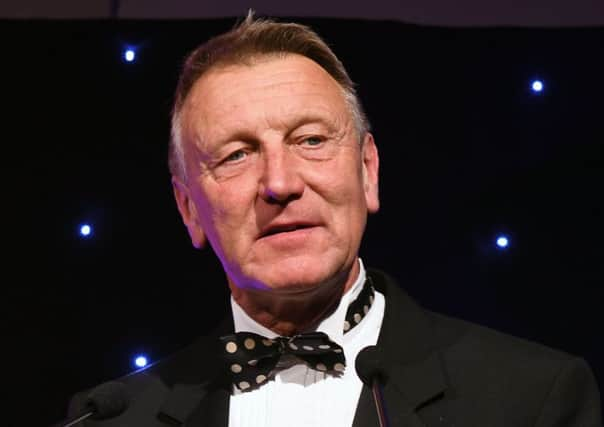Barry Dodd, businessman and Lord-Lieutenant for North Yorkshire


Having co-founded his first company, a graphic arts business in Thirsk, in 1974, he oversaw a series of acquisitions which made his GSM Group, based in Wetherby, a £50m-plus organisation and the largest manufacturer of industrial graphic products in Europe. Its workforce numbered more than 400, at nine locations.
But an increasingly large part of his time was given over to serving Yorkshire’s business community, and he led the Local Enterprise Partnership for York, North Yorkshire and the East Riding from its creation in 2011 until stepping down earlier this year.
Advertisement
Hide AdAdvertisement
Hide AdOn his watch, it attracted more than £250m of government investment into the region, and Mr Dodd’s support extended to transformational projects such as Bridlington Harbour and the development at York Central.
Raised in Chicago, he began his working life as a graduate trainee with the petrochemicals giant ICI, and spent five years in management, based in Teesside, London and New York.
But at 24 he decided to jump ship, to join a small company as technical director. It was, he said, “an absolute disaster”.
It was a chance meeting with his former partner, Geoff Collier, another graduate of ICI, that launched him as an entrepreneur.
Advertisement
Hide AdAdvertisement
Hide Ad“People ask you how you’re doing and everyone always says, fine,” Mr Dodd recalled in an interview with The Yorkshire Post in 2000.
“Geoff asked me how I was getting on and I said, ‘Terrible. I’m going to have to change my job. How are you?’”
They decided to pool their joint savings of £8,000 into a business. Their experience pointed them towards manufacturing, but there was no thought initially into what they might make.
“He was a chemist and I was an engineer, and we tried to work out what business we should be in,” Mr Dodd said. “That’s quite difficult after you’ve been in ICI. You can hardly compete with them and produce ethylene, but that’s what we knew about.”
Advertisement
Hide AdAdvertisement
Hide AdThey settled on metal nameplates, which, they reasoned, were made badly and could be improved through automation.
But it was an unsteady start, and the two were evicted from their first head office, a terrace house in Guisborough, after Mr Dodd dismantled a five-tonne press and re-assembled it on the first floor.
He had calculated that the joists could take the load, but when he turned on the machine, the vibrations shook the plaster off ceiling below, above the landlord’s head.
The partners retreated to a wooden ex-Army hut in Thirsk, with a parade ground attached, which they bought with the aid of a mortgage for small industries in rural areas. Financing themselves from profits and without recourse to business loans, they turned the parade ground into more factory space.
Advertisement
Hide AdAdvertisement
Hide AdMr Collier retired in 1988, and having acquired the rest of the business, Mr Dodd set in train a programme of expansion and acquisition, taking over six companies in seven years.
By 2000, the Thirsk headquarters had been named a centre of best practice by the Department of Trade and Industry, and hosted visits from industrialists keen to learn from their example.
By that time, he had developed a taste for public service, especially where he could help create job opportunities in rural areas for ex-offenders and the young unemployed.
He was a member of the UK Automotive Industry Council, chair of the renewable energy financier CO2Sense Yorkshire, pro-chancellor and chair of the council of Hull University, and chair of the joint Hull, York Medical School.
Advertisement
Hide AdAdvertisement
Hide AdMr Dodd was awarded an OBE in 2006 and became a CBE in the New Year Honours list of 2014, for services to the UK economy.
But his highest honour came in September 2014, when he was appointed Lord-Lieutenant for North Yorkshire. A letter from the Prime Minister, David Cameron, had asked him if he would consent to have his name put forward to the Queen for her approval.
He never lost sight of his business interests, however, and had been chairman and a major shareholder in two software and systems companies and in Varlink, a distributor of mobile computing products in York. He was also a director of Gazelle Aviation, a helicopter company in Wetherby.
He lived near Carlton-in-Cleveland, with his wife, Frances, who survives him, along with his mother.